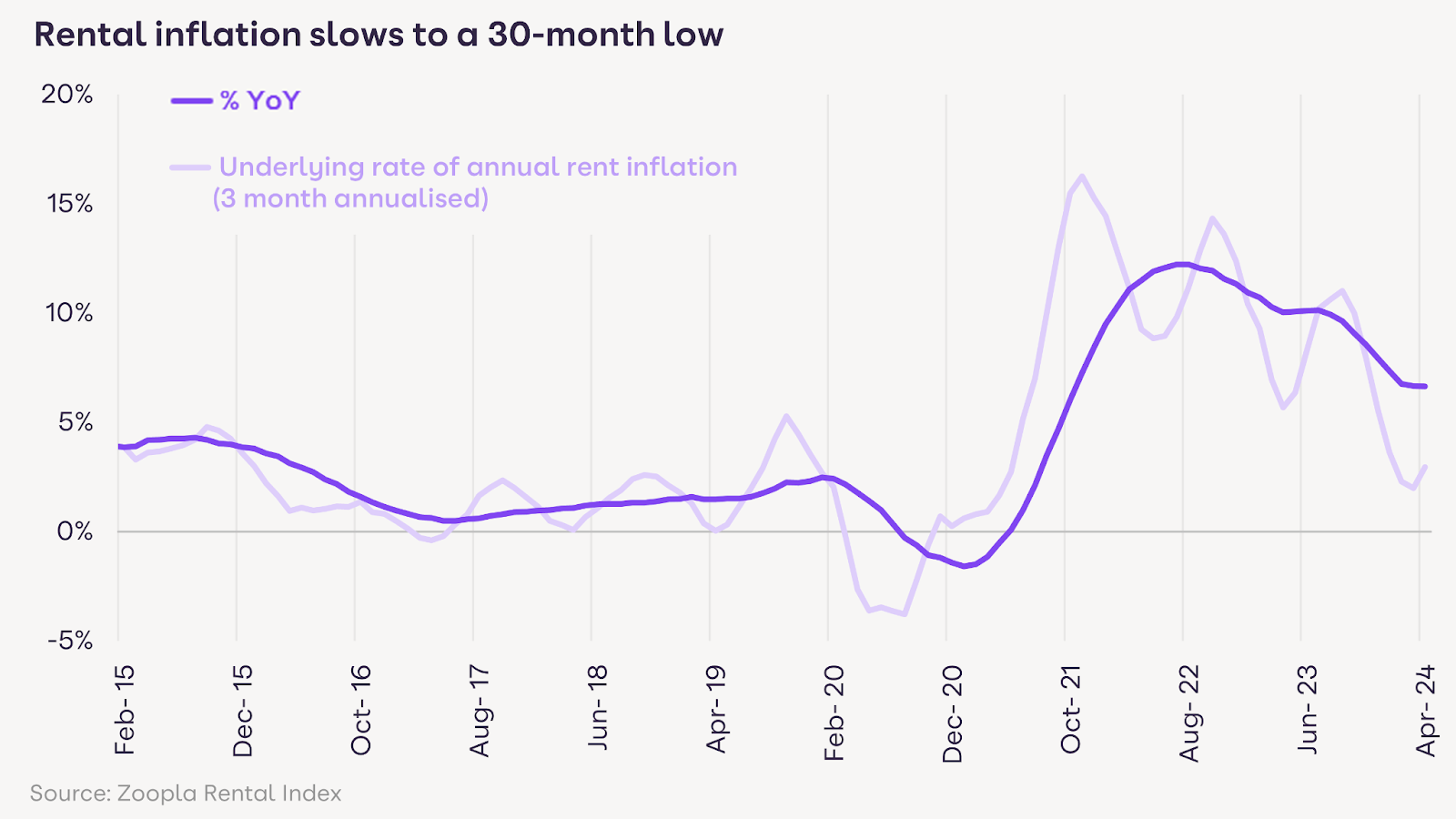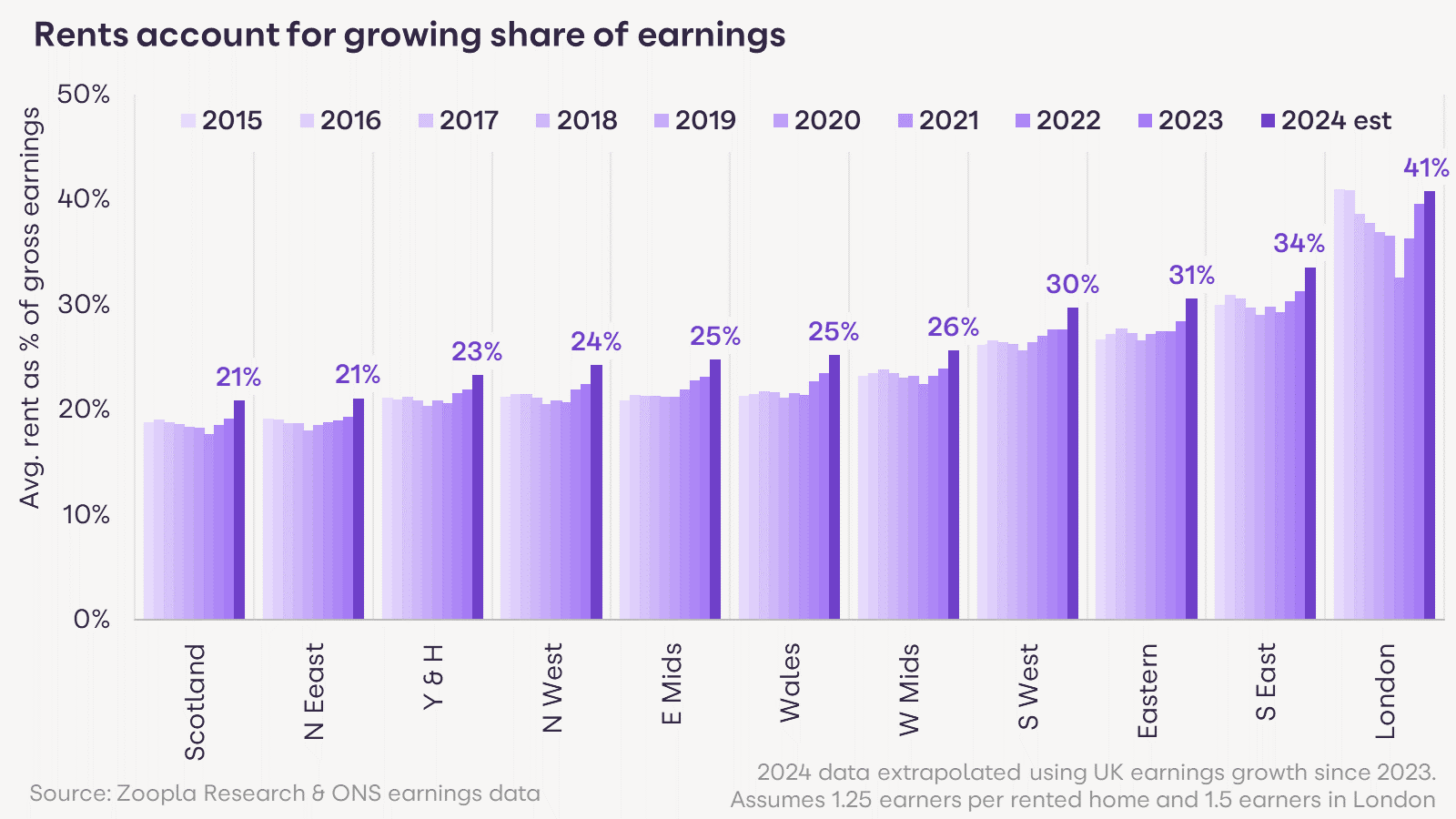Competition for rental properties remains high though

The rate at which rents increased has slowed to 6.6%, the lowest rental growth rate over the past 30 months, property website Zoopla has revealed.
Despite a slowdown in certain cities, the average monthly UK rent now stands at £1,226 per month and competition for rental properties remains high, with 15 people chasing every available home, more than double the pre-pandemic average of six.
Supply has increased by almost 20% over the past year, yet there are still a third fewer homes for rent compared to pre-pandemic levels due to low new investment.
“The increase in the cost of renting has slowed to a 30-month low,” said Richard Donnell (pictured), executive director at Zoopla.
Rents continue to grow faster than average earnings although the gap is much narrower than a year ago.
“Rental demand continues to run well ahead of available supply, which is keeping the upward pressure on rents, but there are some areas where rental growth has stalled,” he noted.
The latest Zoopla Rental Market Report has also found modest rent decreases in the last quarter for several regional cities, including Nottingham, Brighton, York, Glasgow, Cambridge, and London. Inner London experienced slower rental growth, while outer areas saw increases of over 10%.
Rent costs as a percentage of gross earnings vary widely, from 41% in London to 21% in Scotland. This disparity explains why rents are rising fastest in the North East and Scotland, where rental costs are lower relative to earnings. In contrast, London faces growing unaffordability, limiting rental growth. 
The stock of private rented homes in Great Britain has remained flat at approximately 5.4 million since 2016. While there has been no significant exodus of landlords, low net new investment and rising interest rates have stalled supply growth. Zoopla data shows a steady flow of homes previously rented being put up for sale, averaging 31,000 per quarter over the past four years.
Looking ahead, Zoopla predicts rental growth will slow to 5% in 2024, driven by changes in demand and affordability rather than supply expansion. The upcoming general election has delayed the Renters Reform Bill, but rental reform is still needed to improve renter protections, with the property listing platform saying that increasing the stock of both private and affordable rental homes through additional funding and planning reforms should be a priority for the next government.
“The number of private rented homes has been static since 2016 which has compounded the rise in rents over the last 3 years,” Donnell said. “Growing the supply of rented homes, both private and affordable, should be among the top housing priorities for the next government.
“A healthy private rented sector is vital for economic growth and a more balanced housing market. More supply is the fastest route to easing the pressure on renters and improving the overall quality of rented homes.”
Want to be regularly updated with mortgage news and features? Get exclusive interviews, breaking news, and industry events in your inbox – subscribe to our FREE daily newsletter. You can also follow us on Facebook, X (formerly Twitter), and LinkedIn.



